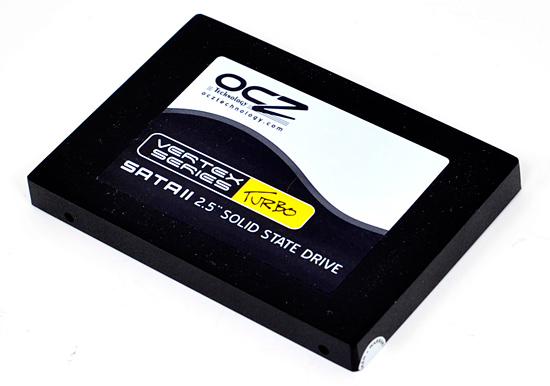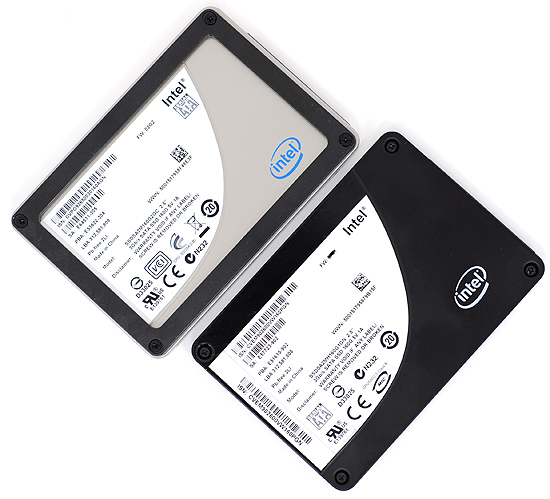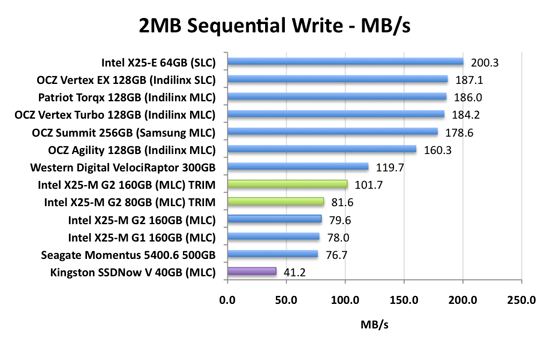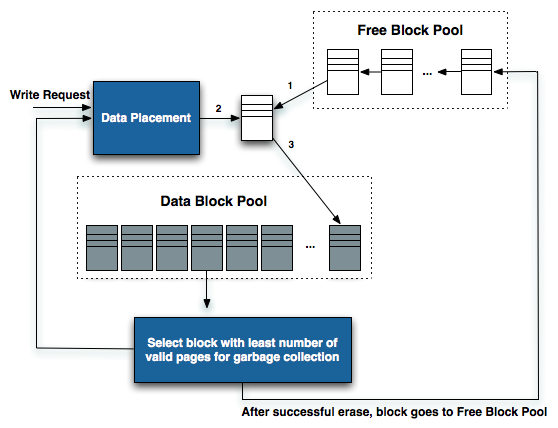The SSD Improv: Intel & Indilinx get TRIM, Kingston Brings Intel Down to $115
by Anand Lal Shimpi on November 17, 2009 7:00 PM EST- Posted in
- Storage
Update 2: Intel has given us an updated timeframe on a fixed version of its TRIM firmware. Intel will release the new firmware by the end of November 2009. More info here.
Update: Some users have had issues with Intel's TRIM firmware bricking their drives, Intel has since pulled the firmware while they figure out what's going on. If you've downloaded it but haven't updated, do so at your own risk. While we haven't had any issues on the three drives we've updated here others have had problems. We'll keep you posted. Intel's official statement is below:
“Yes, we have been contacted by users with issues with the firmware upgrade and are investigating. We take all sightings and issues seriously and are working toward resolution. We have temporarily taken down the firmware link while we investigate.”
Welcome to the anti-climax. After a year of talking about it, Windows 7 and TRIM are here. How does it feel to be a TRIMionaire?

Indilinx, as usual, was first. After a couple of false starts, the two tier 1 Indilinx partners (SuperTalent and OCZ) enabled TRIM on their Barefoot SSDs (OCZ Vertex, SuperTalent UltraDrive). OCZ calls its TRIM firmware 1.40 while SuperTalent calls it 1819. Update:As many of you have correctly pointed out, Crucial also has an 1819 update available for its SSDs. You can get the firmware for your drive from the links here:
| TRIM Firmware Download | |
| Crucial | M225 1819 |
| SuperTalent | UltraDrive GX 1819 |
| OCZ | Vertex /Agility 1.40 |
Intel held off to align with the release of Windows 7. Last week Windows 7 officially went on sale, and today Intel is delivering on its promise: this bootable iso will enable TRIM on X25-M G2 drives.

Only the X25-M G2 gets TRIM, the G1 (right) is left in the dust. The G1 is more resilient than the G2 when it comes to performance degradation over time since it doesn't have TRIM.
Alongside TRIM there’s one more surprise. If you own a 160GB X25-M G2, Intel boosted sequential write speeds from 80MB/s to 100MB/s:

The 80GB drives remain unchanged unfortunately. Intel still won’t tell us why write speeds are so low to begin with.
What TRIM Does
Before we get much further, and without diving into a complete rehash of how SSDs work (which I’ve done here, here and here again), I want to do a quick refresher on TRIM.
SSDs are made up of millions of NAND flash cells. They can be written to in groups called pages (generally 4KB in size) but can only be erased in larger groups called blocks (generally 128 pages or 512KB). These stipulations are partially the source of many SSD performance issues.
The whole ordeal gets more complicated when you realize that an SSD has no way of knowing when a file is deleted. Until an address gets used again, the SSD has to keep track of every last bit of data that’s written to it. The ATA-TRIM instruction tilts the balance in favor of the SSD.
In a supported OS (e.g. Windows 7), whenever you permanently delete a file or format your drive, the addresses that are erased are sent along with the TRIM command to the SSD’s controller. The TRIM instruction tells the SSD that those locations don’t contain valid data and that it no longer has to track them.

Simplified version of how a SSD controller works. TRIM helps the SSD clean blocks and add them to the free block pool
Again, I won’t go into great detail here but TRIM addresses a major part of the performance degradation over time issue that plague all SSDs. A TRIM enabled drive running an OS with TRIM support will stay closer to its peak performance over time.










162 Comments
View All Comments
Tuvok86 - Wednesday, October 28, 2009 - link
oops, I meant40GB - (Intel Controller, 34nm Intel MLC NAND, 32MB Cache)
Tuvok86 - Tuesday, October 27, 2009 - link
I don't like how Kingston labelled this drive as v-series, this may lead people to think that v-series 64gb and 128gb are good as well, while they end up buying a JMicron crap...I know that the v-series stands for value but I'd expect a kind of consistancy in series parts.I'd expect 64 and 128 drives to perform equally or better than the 40gb part, but it wouldn't...perhaps kingston had to find a sloppy way to get rid of those unsold "value" drives...
Regarding ssd reliabilty brought up in the recent posts, I'd be pretty confident to put an SSD in a home pc anytime.
Man, they are used for SERVERS (well, SLC drives actually, but the story is the same), one of the most mission critical environment out there.
Dangers are ahead only if you want to mess trying TRIM, fw updates or any other topic brought up every now and then, but if you wait a while and resist early-adopting new features for a couple days, problems are issued quickly. Anyway backup is just a click away.
clarkn0va - Wednesday, October 28, 2009 - link
I would like to see tests on the JMicron-based Kinston V Series. Supposedly their newer controller resolves the stuttering and random access bottleneck of the gen-1 SSDs.I installed one in a budget build for a customer and was very impressed with performance in a modest use case scenario (with Windows xp and an Atom 330). I would have no reservations using these drives in future builds, although the new 40GB model is an interesting proposition.
clarkn0va - Wednesday, October 28, 2009 - link
I do agree though that the V Series branding is confusing and misleading, in light of the different controller. True to Intel tradition.The0ne - Tuesday, October 27, 2009 - link
Seems not enough testing was done for them to have data corruption, again. These kind of issues shouldn't really surface if proper testing were carried out :/mantis2000 - Tuesday, October 27, 2009 - link
"Would I recommend waiting until next year to buy? This is one of the rare cases where I'd have to answer no."Given all of the serious reliability issues -- including today's latest Intel firmware debacle -- it's quite clear that SSD are not ready for prime time. Over and over again, we hear stories about disks not living up to their potential due to bad drivers or firmware, and there have been far too many cases of total failure with attendant catastrophic data loss.
How can Anand recommend using a SSD on a primary machine?
Wait at least a year for the bugs to be worked out if you value your data.
Griswold - Wednesday, October 28, 2009 - link
Bullshit. What reliability issues? What firmware debacle? The handful people with potentially bricked devices after the flash hardly qualify as a debacle. I would guess the success rate is over 90%. Flashing is always a risk, you know...Intel did the right thing by pulling the firmware, though. They'll look into it. But i wouldnt be surprised if it wasnt an error on their end - they spent lots of time making this firmware. Much, much more than the garbage the competition throws and its customers every week.
drwho9437 - Wednesday, October 28, 2009 - link
I find the statement that flashing is always a risk on a drive based on flash memory very ironic.I should think they could spare the space for a backup firmware if it is as you say.
GullLars - Tuesday, October 27, 2009 - link
I've heard this argument for years now, along with quite a few others that have died away. "SSDs are not ready for prime time". Wich SSDs, and for what usage are they not ready compared to HDDs?Unless you yourself upgrade the firmware of an SSD whitout first waiting and making sure the upgrade is safe, there is no risk by using SSDs that is not greater with HDDs. SSDs generaly are much more reliable and rugged, and when they near the end of their natural life, you will see the raw data failrate predictably increase until it hits the point where the ECC can't do the job anymore, before wich point you take backup and buy a new one.
Anyone who keeps invaluable data on just one physical medium whitout backup would be a fool to think it is safe. Use the SSDs for OS + programs and have a RAID in a redundant mode with offsite backup for your valuable data.
Anand is IMHO right to recommend buying an SSD now and not waiting because we have passed the point where the ratios between price, capacity, performance, and reliability make them far superior to harddisk for boot drives. I've had SSDs for over a year in my computer, and payed a hefty price for being an early adopter, but it was well worth it. The prices, specs, and reliable market today almost make me laugh out loud when people say "SSDs are not ready yet". Claiming "(many) people are not ready for SSDs yet" would be far more accurate.
sotoa - Tuesday, October 27, 2009 - link
The firmware was there this morning and now it's not available? Anyone else see this?